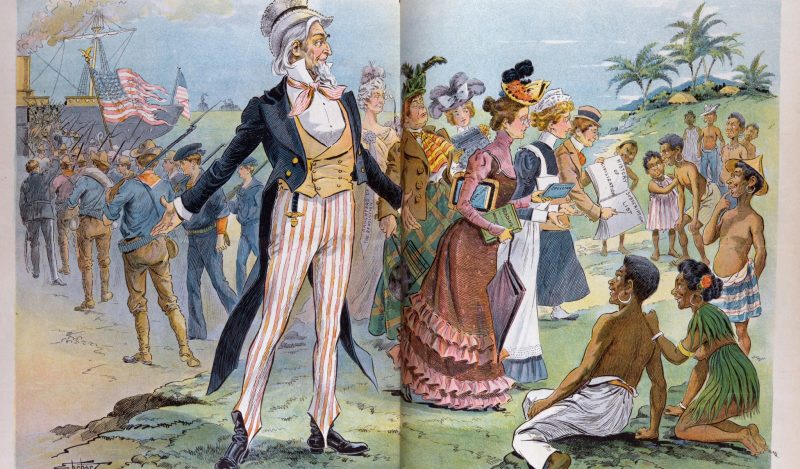The grisly Shanghai lockdown, now entering its eighth week, has forced a reckoning among members of Democratic America’s expert class—even if very few are willing to publicly admit it. Liberal media outlets like the New York Times, which depicted China’s draconian Zero Covid strategy as commendable in early 2021, are now rightly identifying the collateral damage that results when a government prioritizes Covid prevention above all else.
Democratic leaders and their accomplices in media and the academy, however, have yet to concede that non-pharmaceutical interventions (NPIs) were tremendously damaging to our society and ineffective in terms of quelling the virus. Instead, they are trying to save face and maintain the legitimacy of the isolate-vaccinate paradigm, while adroitly distancing themselves from Xi Jinping’s brand of containment.
This tactical retreat is especially conspicuous among the scholars affiliated with the Council on Foreign Relations (CFR), an American think tank with locations in New York and Washington DC.
In early April of this year, CFR senior fellow Yanzhong Huang published an opinion piece for CNN entitled “Why Xi Can’t Quit Zero Covid,” criticizing the shortsightedness of the Chinese Communist Party (CCP) for its unwavering commitment to lockdowns despite their obvious societal harms. Though he lists the unfortunate “ripple effects” of China’s lockdowns, such as shortages and delayed medical care, Huang stops short of identifying these problems as intrinsic to the NPI method of disease containment. Rather, he maintains that because of their dysfunctional political system the Chinese have become overzealous: they’re separating families and killing pets!
Huang is also careful to blame the chaos in Shanghai on China’s decision to put vaccination “on the back burner”—an odd statement given that Huang’s own report for CFR, published in January 2022, asserts without a hint of skepticism that the Chinese have vaccinated 85% of their population. In the same report, Huang faults the CCP, not for locking down the city of Wuhan, but for not doing so soon enough. In other words, according to Huang, lockdowns are a good tool, but the CCP is a bad mechanic.
Months earlier, Huang sounded even less critical of China’s Covid strategy. In a September 2021 piece, authored by CNN reporters Nectar Gan and Jessie Yeung, Huang described a new, AI-powered quarantine complex in Guangzhou as the epitome of modern hygiene. “It’s arguably the most state-of-the-art quarantine center in the world, if you will—very high tech, very sophisticated,” he gushed.
CNN’s Gan and Yeung do not question why a CFR scholar would use such glowing language to describe a quarantine camp built by a totalitarian government known for its abysmal human rights record and penchant for high-tech surveillance. Nor do they explain what CFR does or how the institution figures into U.S. history. CNN readers can safely assume that CFR and its fellows support the practice of detaining individuals for several weeks under the auspices of public health.
A quick search of the Council’s website reveals that no one affiliated with the organization criticized the draconian lockdowns in Australia and New Zealand, which also involved forcibly detaining people and shutting down entire cities in response to small outbreaks. A CFR blog post from May 2020 praised the Antipodean nations for having the most successful Covid response—a position more recently touted by Bill Gates.
One is left to conclude that culling domesticated animals and separating infants from their mothers is where CFR and Democratic media are willing to draw the line and admit that a heretofore-wise lockdown has become unreasonable. Meanwhile, they still treat business closures, mask and vaccine mandates, and putting millions on house arrest until they’re vaccinated as legitimate public health measures.
This is testament to how far the Overton window has shifted in the direction of biomedical authoritarianism. Many Americans aren’t especially disturbed by the loss of rights we took for granted until the spring of 2020—the right to work and operate a small business in person, to send our children to public school, and to breathe and speak freely in public without being encumbered by a face covering. We’re being nudged to feel grateful that the U.S. government is not as extreme as China’s with respect to Covid prevention. Our pets are safe and we won’t be forced into quarantine camps. How did we get here?
Those of us familiar with the heterodox Covid discourse have undoubtedly heard of the World Economic Forum (WEF). Klaus Schwab, the Great Reset, digital IDs, etc.—the organization is the subject of numerous tweets and articles challenging the brave new world envisioned for us by advocates for a ‘woke’ technocratic kleptocracy. But when it comes to the Council on Foreign Relations, we hear relatively little, even though CFR is a venerable American institution with highly influential members who have big ideas about how the world should work.
CFR’s current board of directors reads like the guest list for an ultra-exclusive Davos mixer: David Rubenstein of the Carlyle Group; Laurence Fink of BlackRock; Laurene Powell Jobs, owner of The Atlantic and one of the world’s wealthiest women since the death of her husband (founder of Apple); Jami Miscik, a former CIA analyst who is now CEO of Kissinger Associates; Fareed Zakaria, CNN host and editor of Time magazine; Ruth Porat, CFO of Google and Alphabet; and Sylvia Mathews Burwell, president of American University and former CEO of the Bill and Melinda Gates Foundation; among others.
The Council also offers fellowships in fields ranging from foreign policy to global health. Thomas J. Bollyky is the director of CFR’s global health program and a senior fellow. Bollyky is also the founder and managing editor of Think Global Health, a CFR collaboration with the Institute for Health Metrics and Evaluation (IHME) funded by Bloomberg Philanthropies, which launched in January of 2020. As some might remember, IHME produced some of the direst Covid projections in the spring of 2020 and recommended NPIs across all populations to reduce deaths. It receives core funding from the Gates Foundation.
Other CFR global health fellows include David P. Fidler, who specializes in cyber security and has served as a legal consultant to the World Bank and the WHO; Tom Frieden, former CDC director under Barack Obama; and Luciana Borio, former VP at In-Q-Tel, a strategic investment firm that provides technology solutions for the CIA.
Surely an organization propped up by this cast of characters deserves public scrutiny—especially since CFR endorsed a Covid containment strategy that brought about the largest upward wealth transfer in history and restricted the freedom of average Americans in unprecedented ways.
At the very least, understanding the history and scope of “the ultimate networking and socializing institution of the U.S. ruling class”—as historian Laurence Shoup has described it—can shed light on the evolving motivations of the people who have an outsized say in determining our national priorities and shaping the dominant media narrative.
Founded in 1921 by proponents of Wilsonian internationalism, the Council on Foreign Relations brought together government officials, business leaders, intellectuals, and international lawyers who shared a bipartisan interest in supporting military preparedness and advancing U.S. corporate interests abroad. Elihu Root, a prominent Republican and advocate for American imperial expansion, served as CFR’s first honorary president. John Davis of West Virginia, a former Democratic Congressman turned Wilson’s Ambassador to the UK, served as its first president.
By 1922, with the help of founding member Edwin F. Gay, economic historian and former dean of Harvard Business School, CFR raised $125,000 to launch Foreign Affairs. The publication soon became the most respected American periodical concentrating on foreign policy. In the 1930s the Council received generous grants from the Rockefeller and Ford Foundations and the Carnegie Corporation.
What started out as an organization designed to combat isolationism and further American business interests soon came to double as a kind of fraternity for high-powered men in U.S. intelligence. John Foster and Allen Dulles—who shaped America’s Cold War policies in the State Department and the CIA, respectively—played an integral role in establishing CFR as an institution with international scope during the 1930s and ’40s. In addition to Allen Dulles, CIA directors John A. McCone, Richard Helms, William Colby, George H.W. Bush, Robert Gates, George Tenet, David Petraeus, and William J. Burns (Biden’s CIA director) have all been CFR members or directors.
As one might guess based on its historical roster of members, CFR has always been an anti-populist organization. Council members and fellows specialize in a rhetorical sleight of hand by which they identify ruling class interests as synonymous with the greater good. They do this without mentioning the conflicts of interest that render them ill equipped to make unbiased, ethical decisions regarding what’s best for non-elites.
Throughout the 20th century, however, members maintained a degree of nationalism and professed a commitment to promoting American values abroad—often to the benefit of what President Eisenhower called the Military Industrial Complex (MIC).
Following the end of the Cold War, U.S. power dynamics shifted and the composition of CFR began to reflect those changes. Over the last two decades, the Council has become more diverse and boasts more members with ties to Big Tech. CFR has also embraced the individuals and ideas associated with the globalist philanthropy trend made famous by the Gates Foundation and the Clinton Global Initiative.
In 1997, Samuel Huntington coined the term “Davos Man” to describe a new type of elite who is more loyal to his international peers (and financial interests) than to his own country. These global citizens are ostensibly concerned with solving the world’s problems through philanthropic endeavors, and yet their meddling often produces unanticipated catastrophes for the very people they are trying to help. As more Davos Men wrangled control of the Council, the organization focused on raising significantly more money to fund new programs and a range of research projects, thereby swelling their technocratic ranks.
In 2004, the Gates Foundation gave CFR a generous grant to start a global health program. Science writer Laurie Garrett, who in 2018 asserted that masks only work because they make citizens afraid to approach each other, served as CFR’s first global health fellow. One might wonder why CFR chose a journalist to head a health program, but journalists from legacy media have played an important role at CFR for decades. This speaks to an institutional awareness of how media function as a public relations instrument for any campaign, whether it’s a foreign intervention or a new public health paradigm.
Launching CFR’s global health program provided Gates with the opportunity to market his brand of disease prevention to an audience of America’s most powerful people in business, media, law, and government—to convince these people that his vision of global health should be a national priority. And we have seen the results firsthand. Politicians and journalists now tout authoritarian public health interventions as pro-science and the epitome of selflessness; and they are loath to acknowledge their harms.
Gates, a software mogul now in the vaccine business, frequently appears on televised news to offer policy prescriptions and journalists refrain from raising questions about his conflicts of interest. CFR speakers, while belatedly conceding that perhaps we shouldn’t have closed schools, are still advocating for masks and calling for more centralized government control of public health, including surveillance powers.
In 1961, President Dwight Eisenhower gave a farewell address that has come to be known as the Military-Industrial Complex Speech. In that speech, he asserted that although the U.S. will continue to face daunting challenges, we must resist the “recurring temptation to feel that some spectacular and costly action could become the miraculous solution to all current difficulties.” He famously went on to warn Americans of the growing power of the defense industry.
What is less known is that he also emphasized “the equal and opposite danger that public policy could itself become the captive of a scientific-technological elite.” This is what we are now facing.
Champions of the ruling class are fond of dismissing their critics as conspiracy theorists and rubes. In his 2008 book Superclass, CFR member and Davos attendee David Rothkopf argues that while power is concentrated in the hands of a relatively small number of extraordinary, accomplished (i.e., deserving) individuals worldwide, they do not engage in conspiracies against the masses. Rothkopf claims this is because these individuals sometimes have competing interests and do not possess the wherewithal to cooperate long enough to launch a conspiracy—a term he fails to define.
This was perhaps a more persuasive line of reasoning at the end of the George W. Bush administration when politicians, journalists, and business leaders were actively disagreeing about the legitimacy of the Iraq War and liberal critics were turning towards globalism to save the day.
It is less convincing two years into a program of pandemic mitigation that turned Covid prevention into the new organizing principle for society—one that has closed public schools, destroyed small businesses, and enriched those associated with institutions like CFR—all ostensibly to arrest a virus that is most deadly to people approaching the end of their lives.
If conspiracy is too loaded a term, perhaps we are better off referring to the isolate-vaccinate paradigm as a strategy devised for elites by elites, enforced by their government collaborators—one that exhibits such gross carelessness with the lives of everyday people that, understandably, those harmed believe it to be a crime against them.
Published under a Creative Commons Attribution 4.0 International License
For reprints, please set the canonical link back to the original Brownstone Institute Article and Author.









